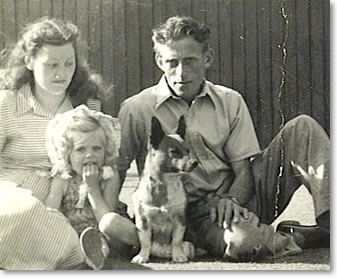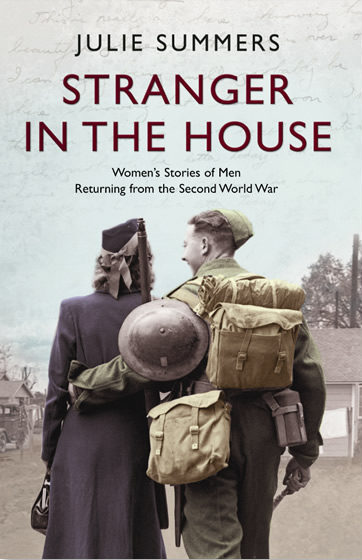The idea for Stranger in the House came to me on a train journey from Oxford to London. I had not long published The Colonel of Tamarkan and the final chapter, when I described the difficult adjustment to post-war life experienced by the colonel when he came back from the Far East in 1945, had struck a chord with many people who wrote to thank me for tackling the thorny topic of returning heroes. I thought about what it must have been like to welcome home a man who had been away for years, who had experienced the horrors of war and who was now expected to get on with life, to build a career, to take up with a family he hardly knew any more and to live in a country ravaged by years of war and rationing. But what about the women? How did they cope? What kind of adjustment did they have to make? How many of these women had any understanding at all of what was coming next?
This book deals with the women’s side of the story. It is a collection of reminiscences about life in the immediate aftermath of the war and of the long term consequences of readjustment. There are interviews with wives, widows, sisters, daughters and granddaughters. I have also used archive material to flesh out the mothers’ side of the story as well as the historical context. This was a period when rationing was still rife – it got worse after the war, not better – when only a tiny percentage of women had vacuum cleaners and many had no running water in the kitchen. Washing was done on a Monday and dusting daily. Single mothers were stigmatised and most illegitimate children were adopted. But it was also the era of the new National Health Service and child allowances, cloth caps and bobbies on bicycles contrasted with new fangled television sets that seemed to show a lot of snow and prefab houses with electric fridges and bathrooms.
Against this backdrop were tales of families coming to terms with men who were damaged physically and, more significantly, mentally by the war. There are tragic stories of childhoods shattered by violence; of marriages fractured by six years of separation; of women who simply did not recognise their sons. But women fought back. One of my heroines was so cross with her husband for falling out of love with her and calling her a nag on his return that she hit him over the head with a cast iron frying pan. Others devoted their lives to caring for their husbands while children, often the victims of situations they simply did not understand, found forgiveness for their fathers, sometimes years after the men had died.

Published in September 2008 by Simon & Schuster
ISBN 978-0743295529

Related media
There is also an audio CD version of this book. Click here for details.
Nicola Barranger recently interviewed Julie about the book for TheInterviewOnline.co.uk. To listen to this interview click here.
Radio 4 recently featured Stranger in the House on Woman’s Hour. Click here to listen to the programme.
The following week, Radio 4 broadcast a selection of listeners’ responses. Click here to listen to the programme.

